Du Gia Village: A Peaceful Retreat Amidst Nature’s Splendor
Nestled in the lush mountains of Ha Giang, Du Gia Village invites travelers to immerse themselves in its captivating beauty and vibrant culture. Join MOTOGO Tours as we explore this enchanting destination.
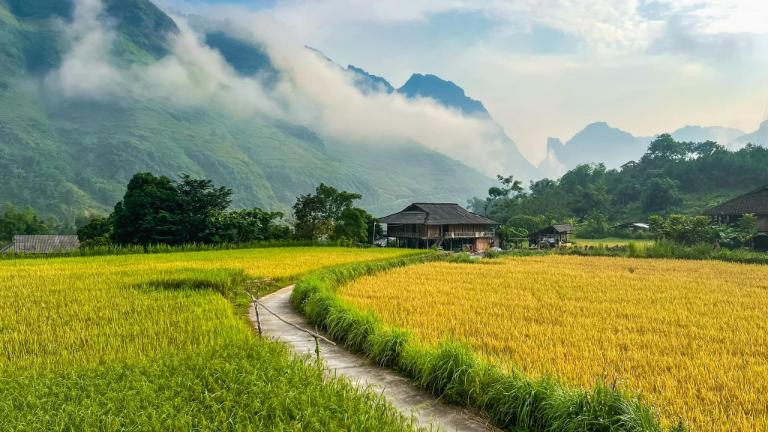
Introduction to Du Gia Village
Du Gia Village, nestled in the northern mountains of Vietnam, is a hidden gem that offers a glimpse into the rich culture and breathtaking landscapes of the region. Known for its stunning natural beauty and vibrant local culture, Du Gia is an ideal destination for travelers looking to escape the hustle and bustle of city life.
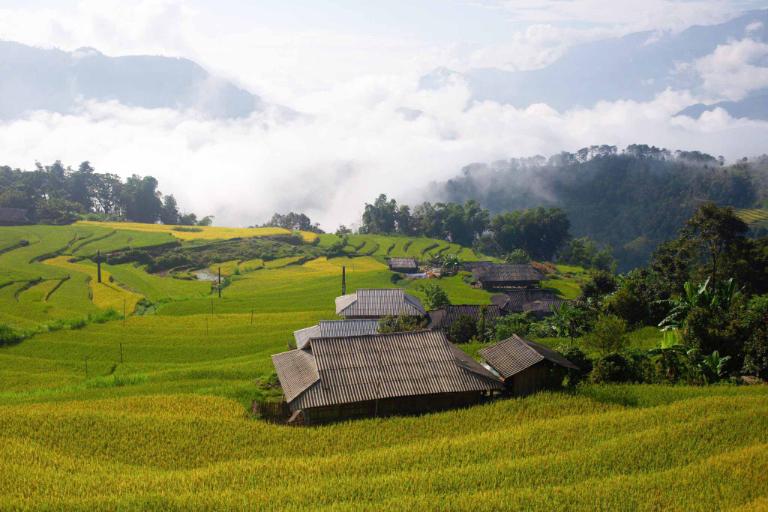
Where is Du Gia Village?
Du Gia Village is located in the Vi Xuyen District of Ha Giang Province, approximately 25 kilometers from Ha Giang city. Rising about 1,500 meters above sea level, the town is encircled by stunning mountains and lush valleys. The village is primarily inhabited by the H’mong ethnic minority, who maintain their traditional way of life and rich cultural heritage.
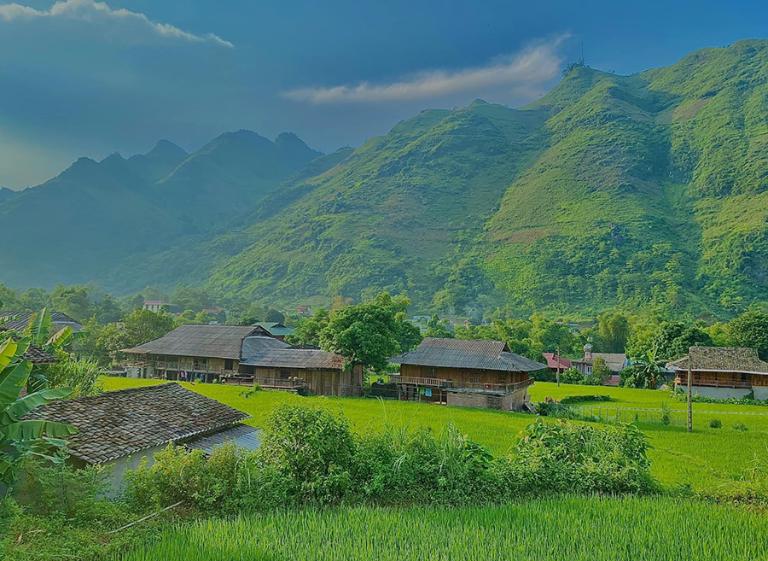
Perfect visiting timing for Du Gia
Everybody should visit Du Gia Village during the dry season, between October and April. This period would be perfect for hiking and photography since it features clear sky, pleasant temps, and striking landscape.
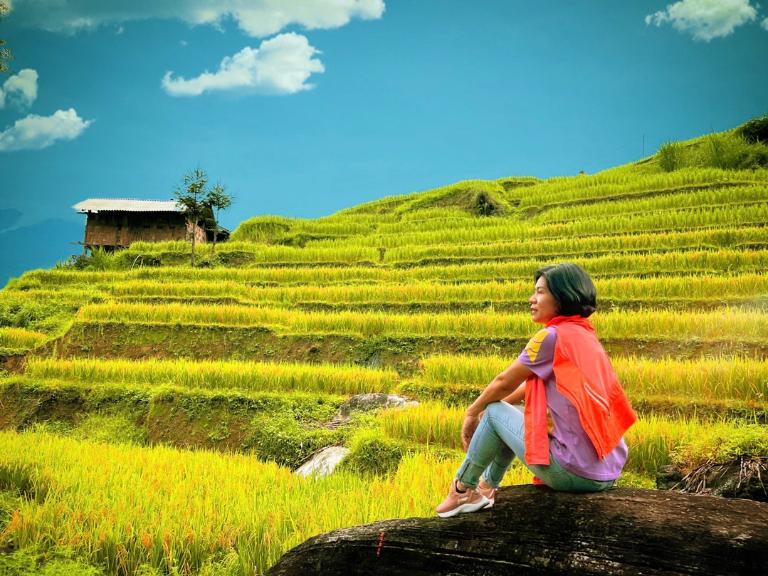
Harvest season October through November is when the golden rice fields produce amazing landscapes. Ha Giang in october and Ha Giang in november are a fantastic chance to witness the surrounding farmers at work helping with harvesting. From December to February, although the temperature may be cooler at this season, visitors will value the calm village vibe and enjoy the often mist-covered amazing vistas.
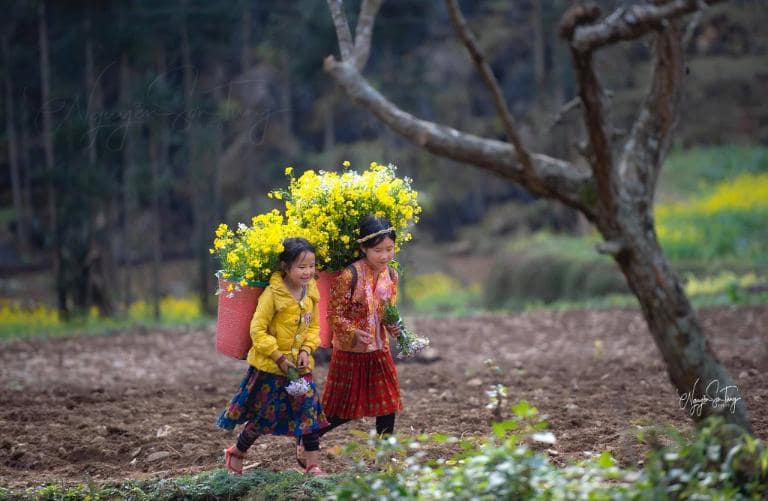
March through April is particularly lovely since the landscape comes alive with vibrantly colored flowers, most especially the well-known buckwheat blossoms, which abound. For those who love cameras and the outdoors, this is a great time.
Travelling to Du Gia Village
Approaching Du Gia Village calls for a trip via Vietnam’s gorgeous northern mountains. Here’s how to get from Hanoi to Ha Giang then on to Du Gia.
From Hanoi to Ha Giang
There are several transportation options to travel from Hanoi to Ha Giang. The most popular and economical choice is to take a bus, with several companies offering overnight services from Hanoi to Ha Giang. This journey takes around 6-8 hours, with departures typically in the evening, so booking in advance is recommended, especially during peak travel seasons.
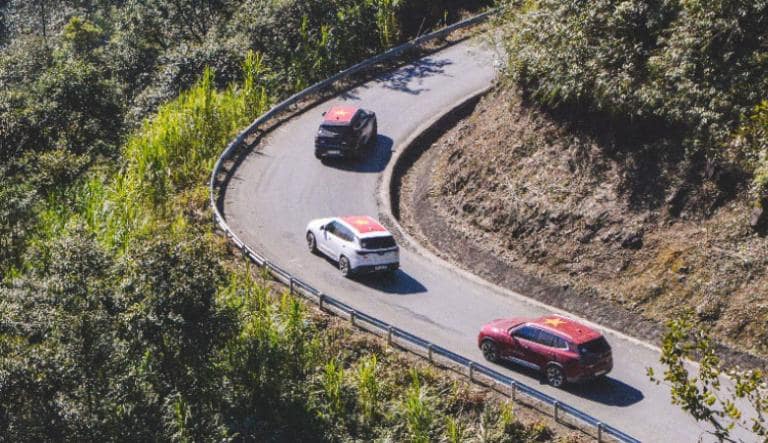
The ticket price for buses from Hanoi to Ha Giang typically ranges from about 200,000 to 350,000 VND, depending on the type of bus and the company you choose. Some premium bus companies may charge higher fares, reaching up to 450,000 VND.
Best ways to travel from Ha Giang city to Du Gia Village
Once in Ha Giang city, there are several methods one could go to Du Gia Village. Local busses run often, arriving to the settlement at 1.5 to 2 hour intervals. Renting a motorbike in Ha Giang city or joining Ha Giang Loop Tours, lets you experience a more exciting ride across stunning scenery and other towns; just be sure you wear a helmet and become familiar with local traffic laws.
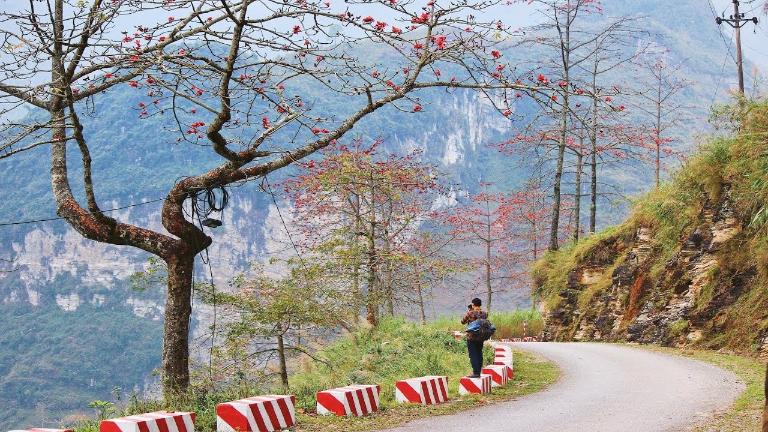
Cultural legacy and daily life
Rich in cultural legacy and local customs, Du Gia Village is an intriguing place for those curious in the way of life of its people. Apart from displaying the breathtaking northern Vietnam’s natural surroundings, the village acts as a living museum of the customs, beliefs, and way of life of its several ethnic groups.
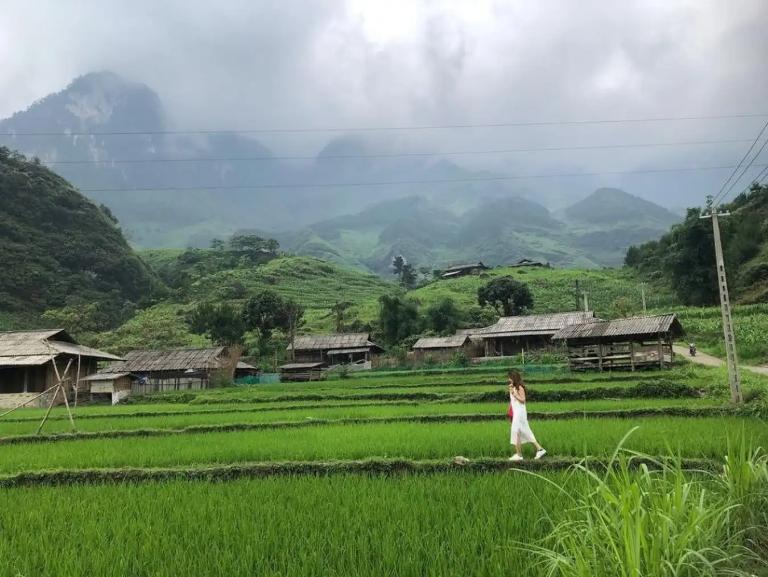
History and Cultural Valuation
Deeply entwined with the nearby ethnic groups, especially Hmong ethnic group in Ha Giang, Du Gia Village boasts a long and rich history. Originally founded centuries ago, the village grew as a center for farming, mostly for cattle and rice. The agricultural methods have created a strong feeling of community whereby successful harvests depend on resident cooperation and coordination.
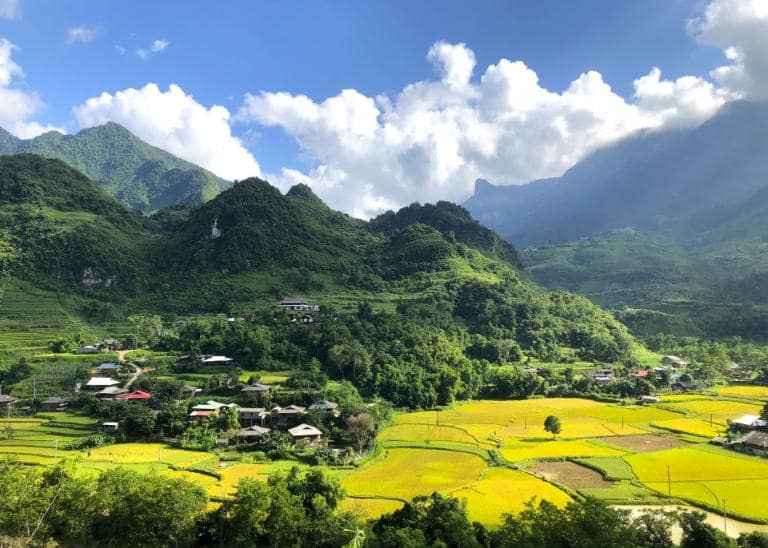
Du Gia’s Ethnic Diverse Character
There are many ethnic groups living in Du Gia; the most well-known one is the H’mong. Other ethnic minorities who call the area home—the Tay, Nung, and Dao ethnic group in Ha Giang — each add to the rich cultural fabric of the community. Celebrating their own personality through clothes that highlights their background, the H’mong—known for their vivid textiles and delicate embroidery—showcase Conversely, the Tay people are renowned for their rice farming methods and classic stilt homes.
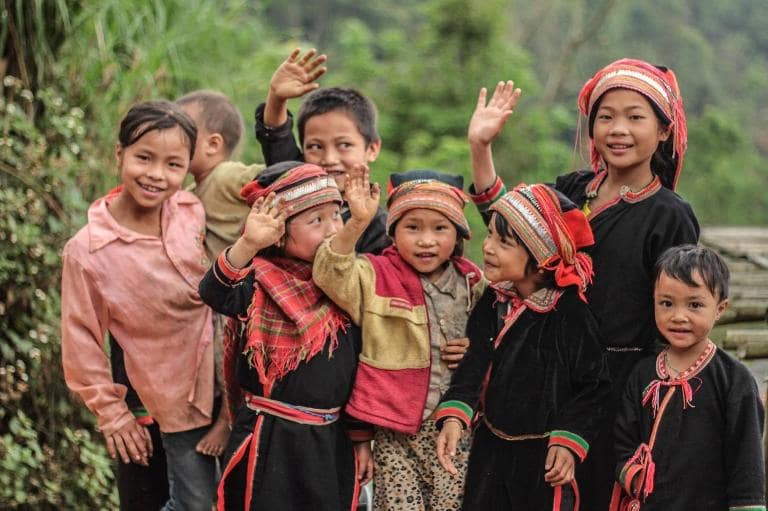
This diversity is reflected in the local dialects, clothing styles, and traditional practices, creating a mosaic of cultural expression. Every group contributes to the larger Du Gia cultural scene while nevertheless preserving their own distinctive character. The harmonic coexistence of these people improves the appeal of the village and offers guests a special chance to learn about many civilizations.
Traditional Customs and Festivals
The lives of Du Gia’s people depends much on their traditional practices and celebrations. Family get-togethers, traditional cuisine, and cultural events including lion dances and folk melodies define the Lunar New Year (Tet). Celebrated in November, the H’mong New Year is yet another important occasion with colorful costumes, folk games, and singing contests.
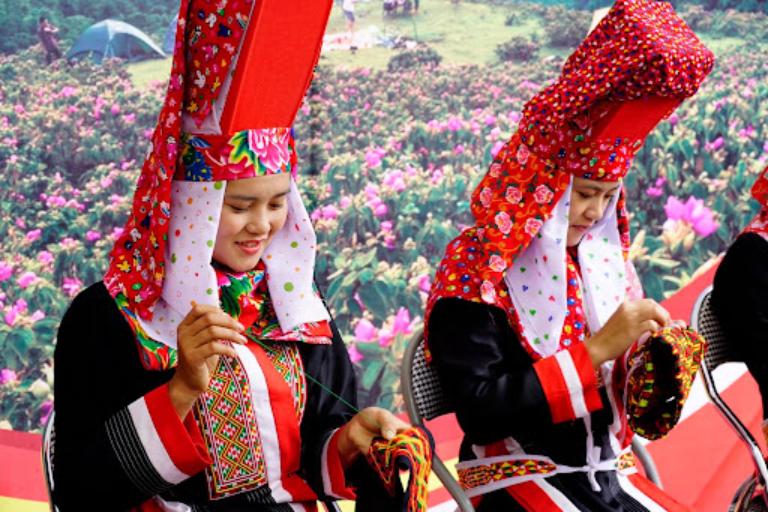
Villagers dress in their best traditional clothing and participate in several events including horse racing and traditional dance contests during this festival. Participating in these celebrations allows Du Gia visitors to learn about the customs defining this magical town and the way of life of the local people.
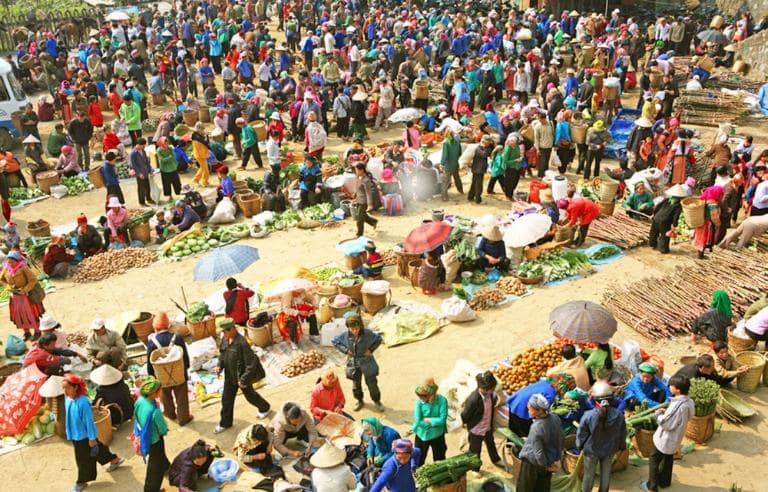
Apart from these big celebrations, daily routines often mirror the local culture. For example, presenting rice wine at shared meals represents friendliness and hospitality. Not merely a source of money, local handicaps such traditional needlework and weaving are essential component of cultural expression.
Activities at Du Gia Village
Du Gia Village provides a range of events to let guests fully appreciate the local culture and natural beauty. There is something for everyone from discovering breathtaking scenery to interacting with the community.
The Du Gia Waterfall
Rising from streams down the rocky mountains, Du Gia Waterfall is a stunning natural wonder. To create a peaceful and beautiful image, the waterfall splits in two different halves. Following the forest pathway will bring you to a clean, energizing stream two meters wide and roughly six meters tall coming from the waterfall.
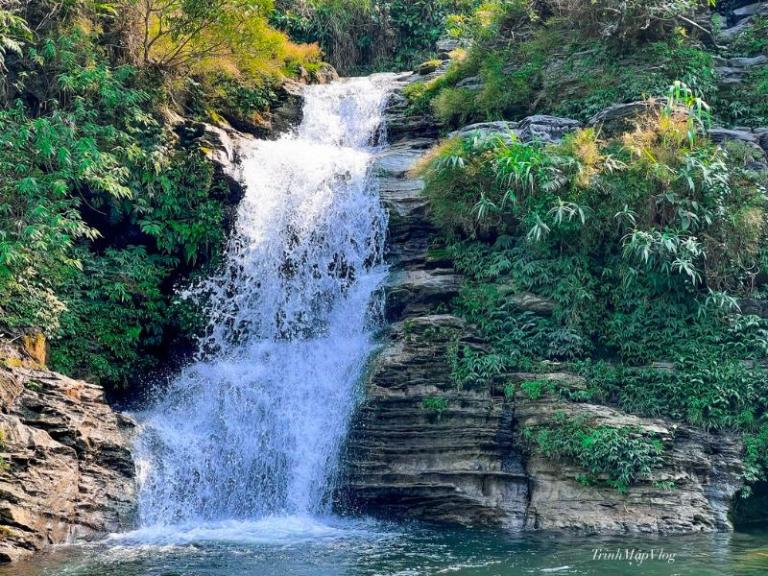
Another cascade at the top of the waterfall enhances the surroundings. Both water flows create perfect pools where visitors may swim, providing the perfect cold relief from the heat and value of the natural peace of mind.
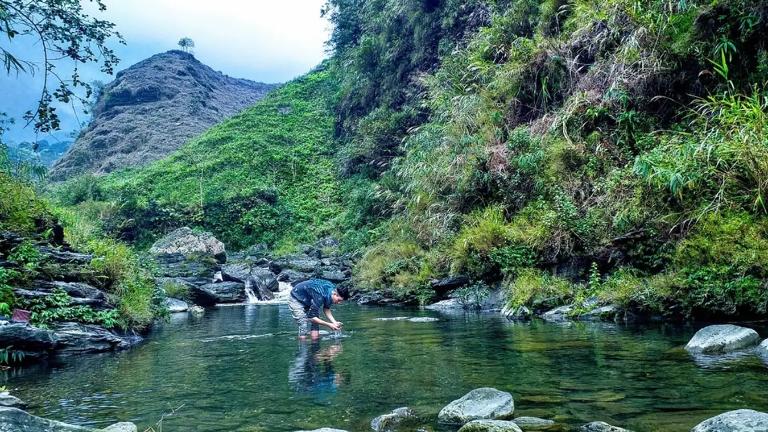
The place is ideal for slow appreciation of the natural beauty since lush flora and rocky outcrops surround it. Special rock formations strewn among the flowing water enable visitors relax and absorb in the peace.
Trekking Through Rice Terraces
One excellent approach to appreciate the natural beauty of the area is to go around the rice terraces around Du Gia. Particularly in the planting and harvest seasons when the rice is brilliant green or golden yellow, the terraced fields produce an amazing scene.
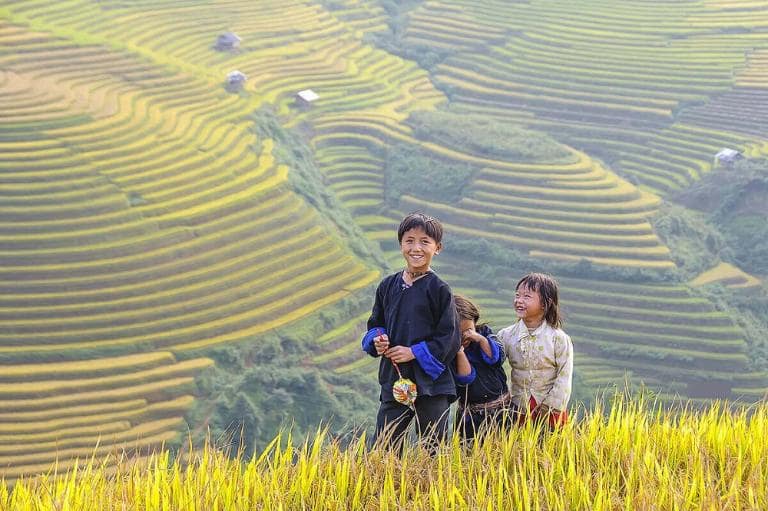
Various trekking routes cater to different skill levels, allowing you to explore the scenic surroundings while enjoying panoramic views of the valleys and mountains. Along the way, you might encounter friendly local farmers working in the fields, providing a glimpse into their daily lives.
Visit Small Villages
Visiting the local villages near Du Gia is a captivating experience that immerses you in the rich cultural tapestry of the region. Approaching these settlements will find you surrounded by terraced fields and traditional stilt homes with vivid fabrics.
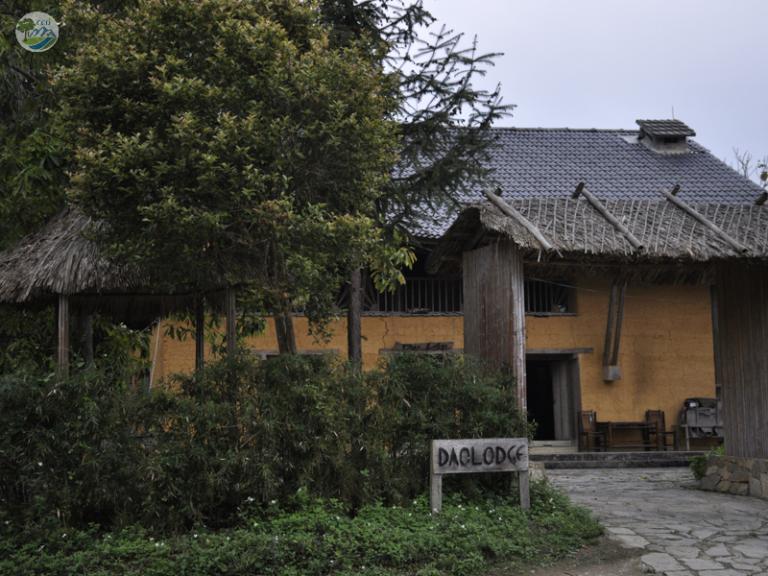
Walking down the tiny roads covered with tall rice plants and you will find people going about their daily lives. Farmers may be seen tending to their crops as artisans delicately create intricate motifs into vivid fabrics, so highlighting their workmanship handed down over the years.
The scenery are similarly fascinating; rolling hills covered in luxuriant greenery contrasts with the far-off mountains. Particularly in harvest season, the golden tones of rice fields brilliantly contrast with the deep blue sky to produce a postcard-worthy picture everywhere.
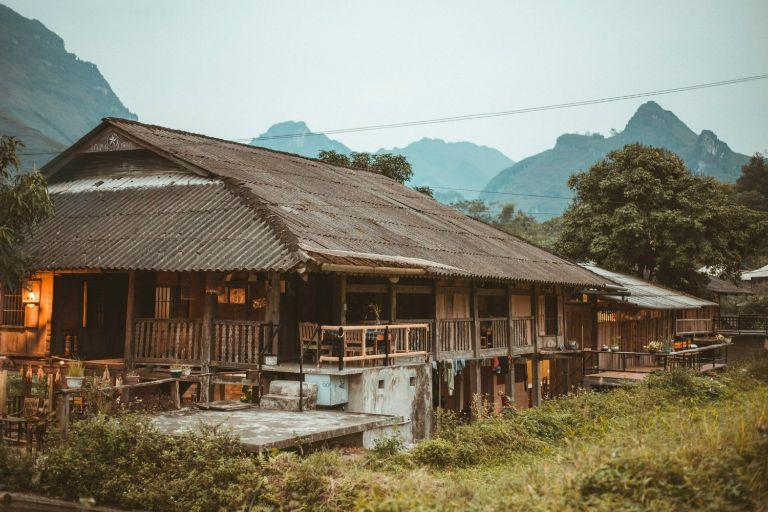
Apart from the amazing settings, the pleasant greeting of the people adds to the particularness of the visit. One can be encouraged to participate in local practices including regional food or cultural events in order to personally experience their way of life.
Local markets and handicrafts
Ha Giang’s local markets in Du Gia Village let you experience the vibrant atmosphere and look for unique handicarticles – local handicrafts in Ha Giang. Usually set for specific days of the week, markets offer a wide range of items including handcrafted fabrics, locally grown food, and traditional clothing. Purchasing homemade items not only supports local artists but also allows you to carry of Du Gia’s culture home.
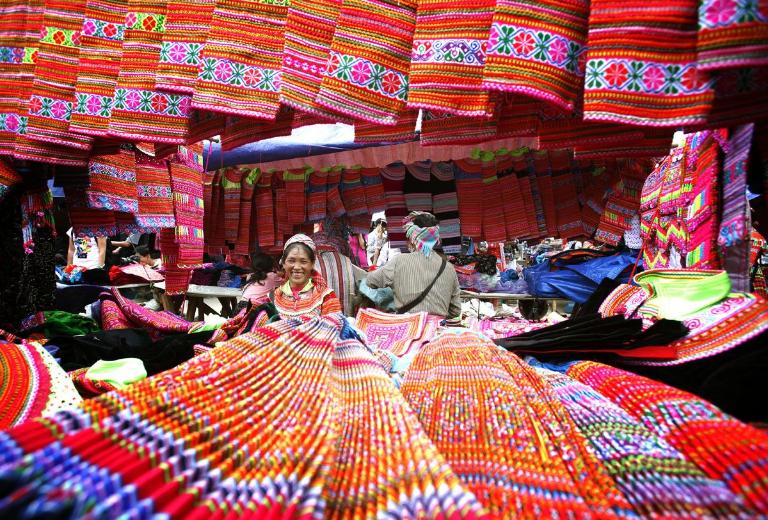
Catch fish at Du Gia stream
One popular past activity for those seeking something fascinating and amusing is fishing at Du Gia Stream. The stream teeming with fish would be perfect for a laid-back fishing expedition. You might bring your own fishing tools or rent equipment close by.
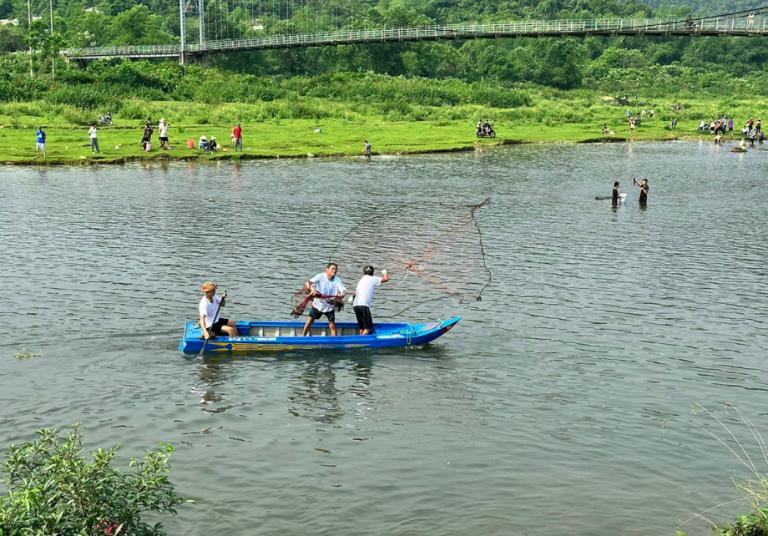
Particularly families and groups appreciate this activity since it offers a chance to unwind in the surroundings and interact with friends. Once you have a big catch, you might even ask surrounding cooks to prepare your fish traditionally Vietnamese.
Homestays and Accommodations
Du Gia Village presents a range of homestay choices that provide guests a special chance to encounter regional hospitality and culture. Living in a homestay lets you enjoy the breathtaking natural surroundings and really experience the daily life of the residents.
Popular homestays in Du Gia.
Travelers have started to favor several homestays in Du Gia for their authenticity and appeal. Homestay of the H’mong Family is one well-known choice where visitors may savor locally grown, fresh food cooked traditionally. Comprising wooden buildings reflecting the architectural style of the area, the comfortable lodging offers stunning views of the neighboring rice terraces.
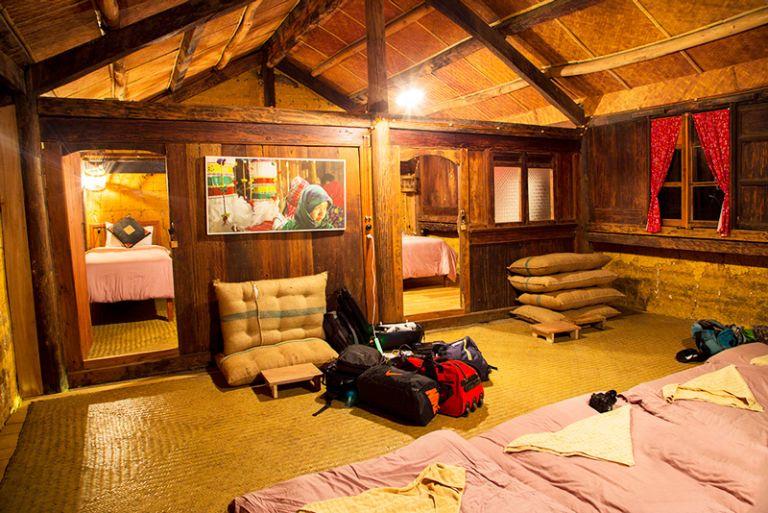
Usually featuring modest but cozy bedding and classic décor, the rooms let visitors really enjoy the local vibe. For those on a tight budget, this guesthouse is reasonably priced—its rates usually run from $10 to $20 a night.
Experience of Staying with Locals
Maintaining a homestay in Du Gia offers an intensive experience unlike anything else related to travel. Interacting with nearby families allows visitors to learn about their daily routines, customs, and ways of life. This intimate link makes memories last and deepens your awareness of the local way of life.
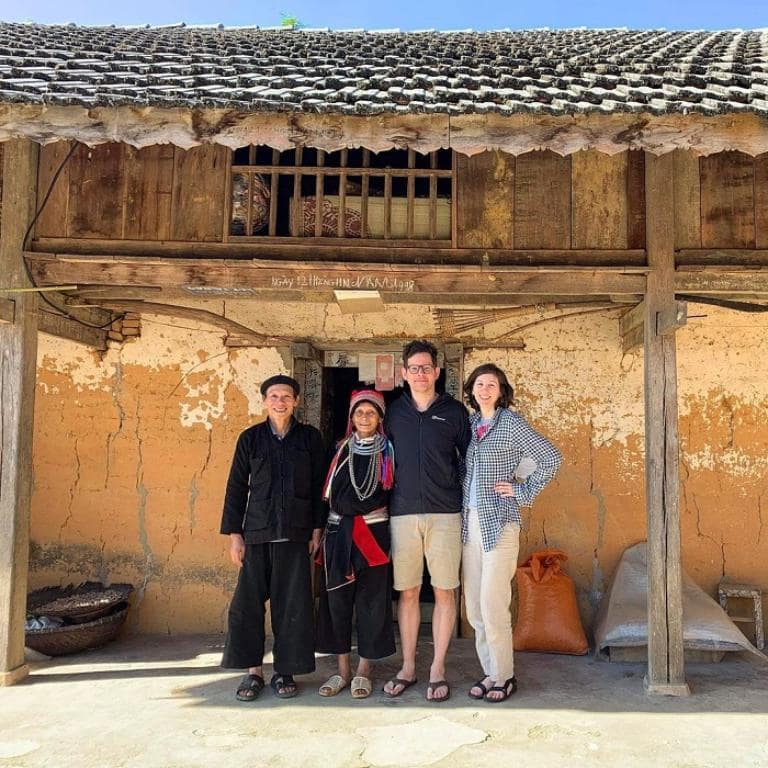
While savoring traditional cuisine like bamboo rice or grilled fish, you might find yourself gathering around a communal fire in the evenings sharing stories with your hosts and other guests. This not only lets you enjoy real local cuisine but also helps both hosts and visitors to feel a community.
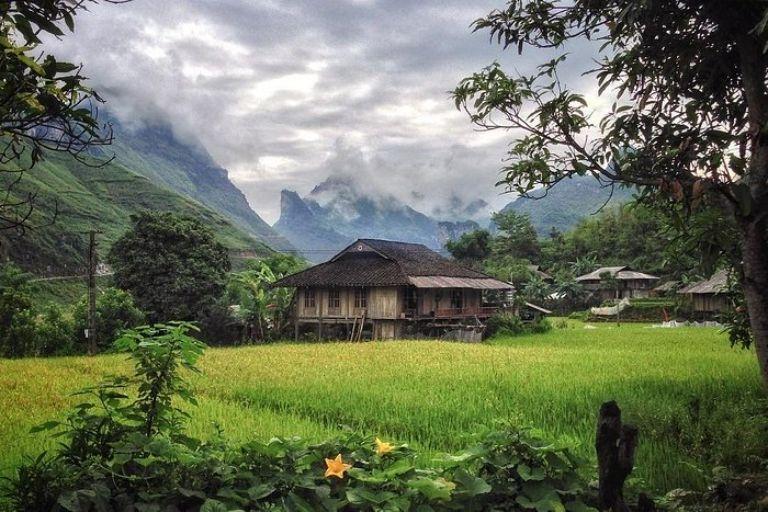
Moreover, engaging in daily tasks like cooking, weaving, or gardening provides insightful analysis of the way of life of the people. Many hosts are ready to offer their expertise, therefore your stay not only is pleasant but also instructive.
Local Cuisine
Du Gia Village’s cuisine is a wonderful mirror of the agricultural wealth and rich cultural legacy of the area. Visitors are served a range of traditional meals highlighting locally grown, fresh foods, usually created following time-honoured recipes handed down through the years.
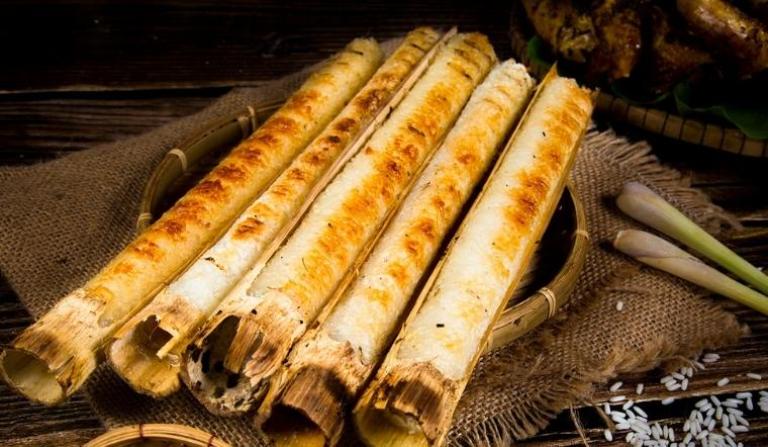
Among the best foods is Bac Me Lam Rice, a local culinary delicacy. Mixed with other ingredients including herbs and mushrooms, sticky rice is put into bamboo tubes and cooked over an open flame. Visitors really should try this cooking technique since it gives the rice a faint, smokey taste.
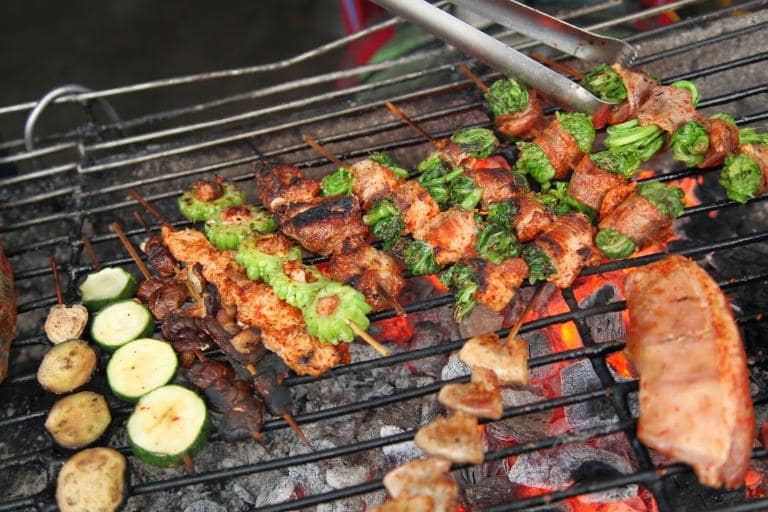
Usually fished fresh from nearby streams, grilled fish is another really well-liked meal. Before grilling to excellence, the fish marinated in a mixture of herbs and spices. Often presented with a side of dipping sauce created from fish sauce, lime juice, and chile, this meal really captures the simplicity and freshness of regional food.
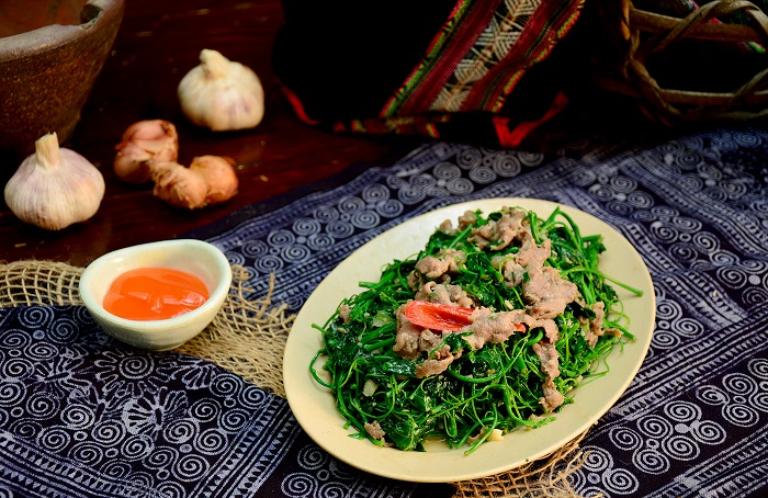
Wild Vegetables are also a highlight of Du Gia’s culinary scene. Foraged from the surrounding forests and mountains, these greens are usually stir-fried or used in salads, offering a taste of the region’s natural bounty. They are not only flavorful but also rich in nutrients.
Not miss Thang Co, a classic soup created with horse meat, different herbs, and spices. Often connected with the ethnic Mongol population, this dish is a filling lunch savored on important events and celebrations. Its own flavor character offers a real taste of local culture.
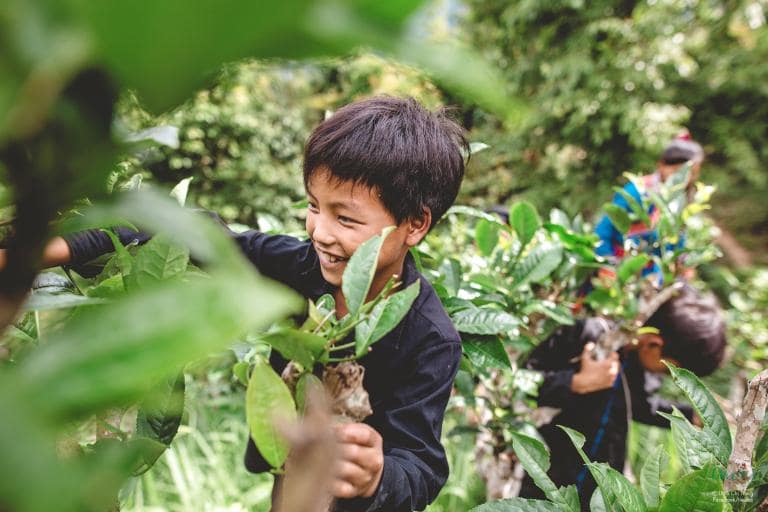
Ultimately, without tasting native herbal tea, no meal in Du Gia is whole. Made with natural herbs and flowers, this tea is reviving and supposed to provide health advantages. After a day of sight-seeing, a great approach to relax is to sip this aromatic beverage while appreciating the views of the rice terraces.
Du Gia Village is a special fusion of real local experiences, great natural beauty, and rich cultural legacy. Discovering the breathtaking scenery, savoring local cuisine, or interacting with the friendly people will help guests to build lifelong memories in this little treasure of Vietnam.
Related Posts:
- Nam Dam Village: A Timeless Haven of Cultural Harmony
- Lo Lo Chai Village: A Tranquil Retreat at the Nation’s Frontier
- Thon Tha Village: A Serene Haven at the Foot of Tay Con Linh
- Pa Vi Village: A H’Mong Cultural Haven in Nature’s Embrace
- Thien Huong Village: The Century-Old Ancient Village at the Nation’s Edge









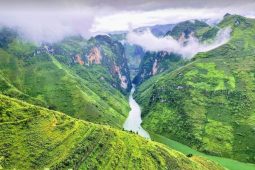


Be the first to comment!